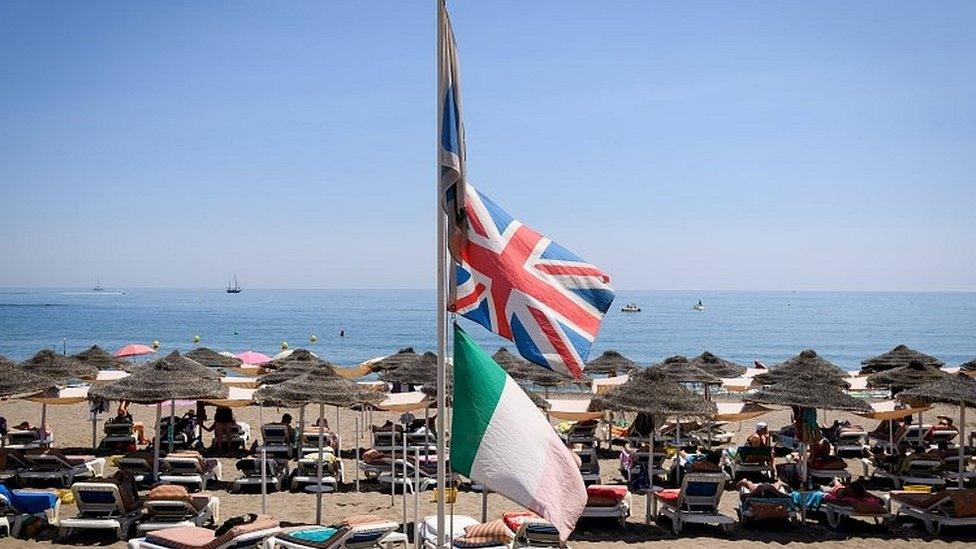Brexit: David Davis 'optimistic' over EU trade deal
- Published
Davis: Brexit talks 'getting a bit tense'
David Davis says he remains optimistic that a "seamless" trade deal can be struck with the EU, despite tension over issues like the UK's divorce bill.
The UK Brexit secretary used a speech in the US to champion free trade and said, on Brexit, he wants "an outcome which is in everyone's interests".
This week's talks had been "a bit tense" but it was "only early stages".
His EU counterpart Michel Barnier said on Thursday "no decisive progress" had been made on key issues in talks.
Both sides have expressed frustration at the pace of Brexit talks amid a disagreement about what the UK should pay to settle its liabilities when it leaves the EU, the so-called "divorce bill".
The EU has said until that issue - and others such as the rights of EU citizens in the UK and UK expats in the EU - is resolved, it will not discuss the UK's future relationship with the bloc, including any new trade deal.
EU negotiator Mr Barnier said on Thursday that some of the UK's requests were "simply impossible" and suggested that, on the divorce bill, it was "clear that the UK doesn't feel legally obliged to honour its obligations".
'Determined optimist'
Speaking to business groups in Washington DC on Friday, Mr Davis said the EU had presented the UK with "a large bill" and the UK had "very good lawyers" who would go through it "line by line".
"It's getting a bit tense, but it's only early stages," he said.
He said the UK's "overarching aim" in negotiations was to secure a "successful future partnership" with the EU which delivers the "most seamless and frictionless trade in goods and services possible".

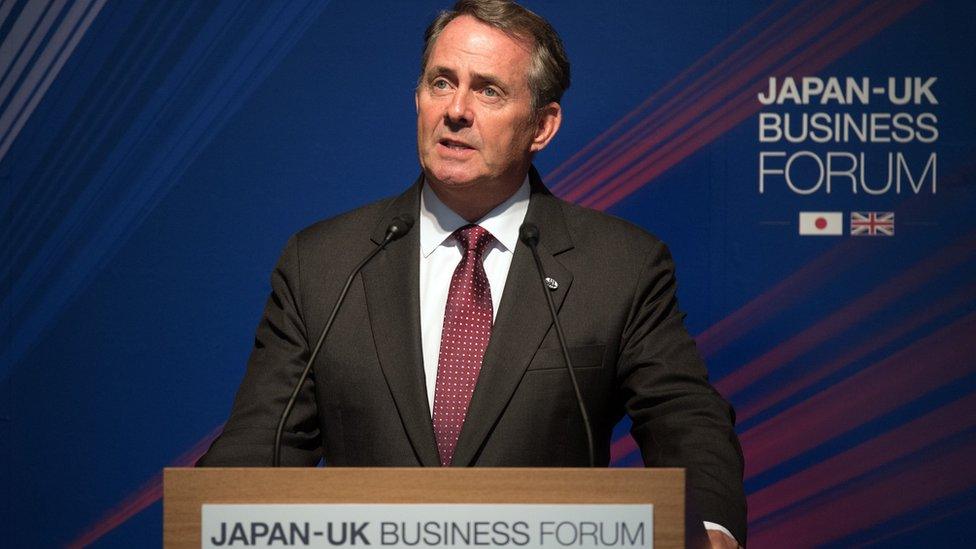
Mr Fox spoke to the media at the end of a three-day visit to Japan
Blackmail or turbulence?
Analysis by BBC political correspondent Iain Watson
Liam Fox undertook a range of broadcast interviews before flying back from Japan.
His accusation of "blackmail" featured only in the first of these. That suggests this wasn't a pre-scripted broadside.
Instead, it perhaps demonstrated frustration that, so far, the government's strategy of pushing for wider trade talks with the EU in the autumn hasn't been successful.
The aim was to persuade big EU trading nations to put pressure on the EU Commission to start trade talks after the October EU summit but it seems that the end of the year now looks a more likely timescale.
His colleague David Davis - a self-declared "determined optimist" - thinks that there could be more progress after German elections later this month.
Interestingly, he declined to repeat or endorse the international trade secretary's rather undiplomatic language - simply warning of more turbulence to come.

"There are many that doubt this is possible but when I spoke to my European counterpart Michel Barnier I said to him once: 'The pessimist sees difficulty in every opportunity, the optimist sees opportunity in every difficulty'.
"And as ever on that front I am a determined optimist in this - we will get to those opportunities.
"Because fundamentally I believe that a good deal is in the interests of both the United Kingdom and the European Union and of the entire global community."
He said the negotiations were not about "machismo" but about "finding solutions which are in everyone's interests".
Mr Davis did not repeat the phrase used by his colleague, International Trade Secretary Liam Fox, who told ITV earlier that the UK could not be "blackmailed" into settling a divorce bill as the price of moving on to trade discussions.
But he said: "We are in a very difficult and tough, complicated negotiation. I have said from the beginning it will be turbulent. What we are having at the moment is the first ripple and there will be many more ripples along the way."
Responding to Mr Fox's use of the word "blackmail", a government source said "different ministers will use different phrases but the message is the same - we will meet our obligations but these must be in accordance with EU law".
'Early stages'
No figure has yet been put on the "divorce" payment, but European Commission president Jean-Claude Juncker has suggested it could come in at about 60bn euros (£55bn).
The UK, which voted to leave the EU in June 2016, officially began Brexit talks on 19 June this year and is due to leave the EU on Friday, 29 March 2019.
The European Council is due to meet in October and will decide whether sufficient progress has been made on key Brexit discussions to allow negotiations to move on to trade and the UK's future relationship with the EU.
If it has not, as Mr Barnier has suggested, the next opportunity would be the council's meeting in December - meaning talks about the future relationship would be unlikely to begin before the end of the year.
Mr Davis also used his speech in the US capital to champion free trade.
He argued that the world faced social and economic challenges and "the answer to these challenges is not to turn inwards and become isolationist" but to "lead the world forward once again".
- Published1 September 2017
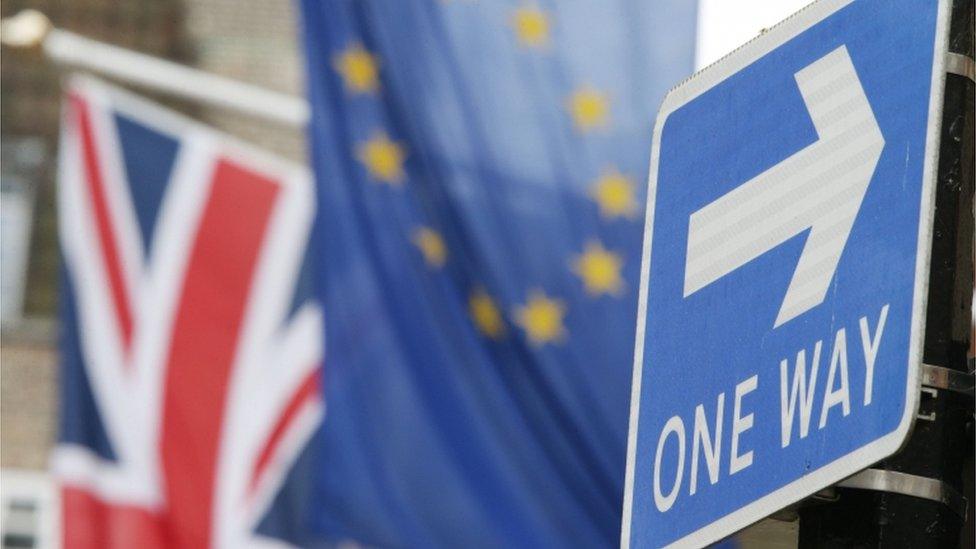
- Published31 August 2017
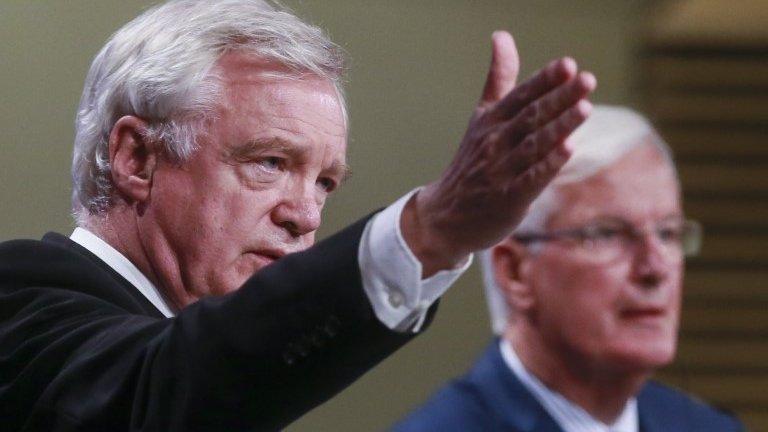
- Published31 August 2017
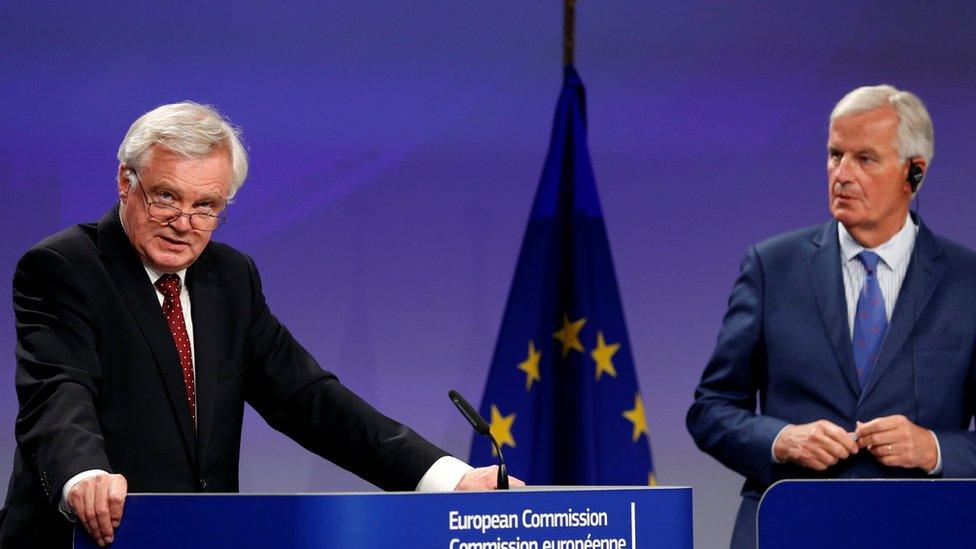
- Published31 August 2017
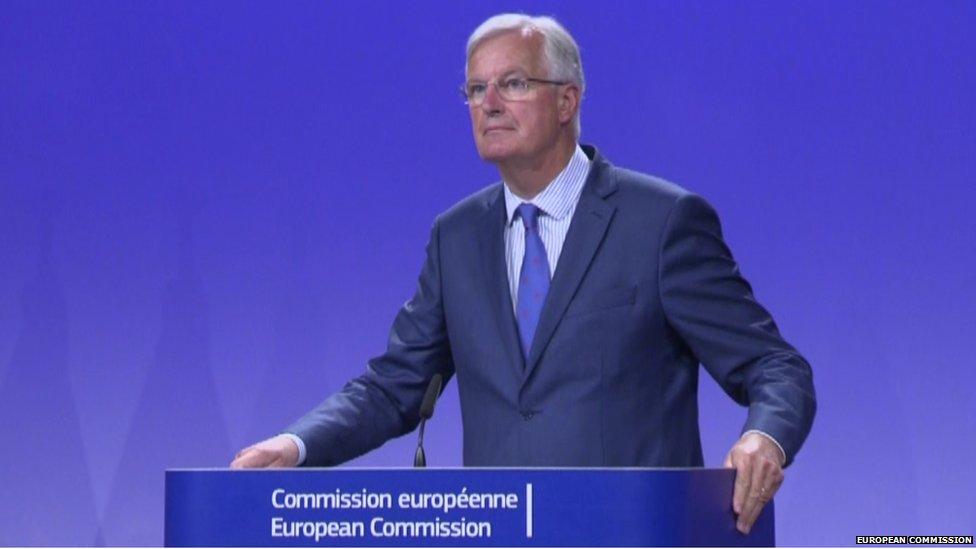
- Published31 August 2017
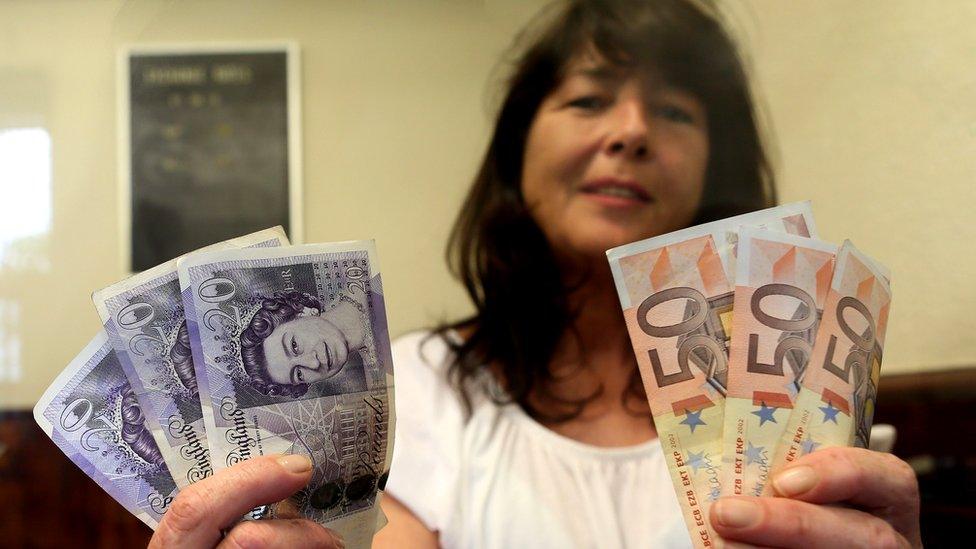
- Published31 August 2017
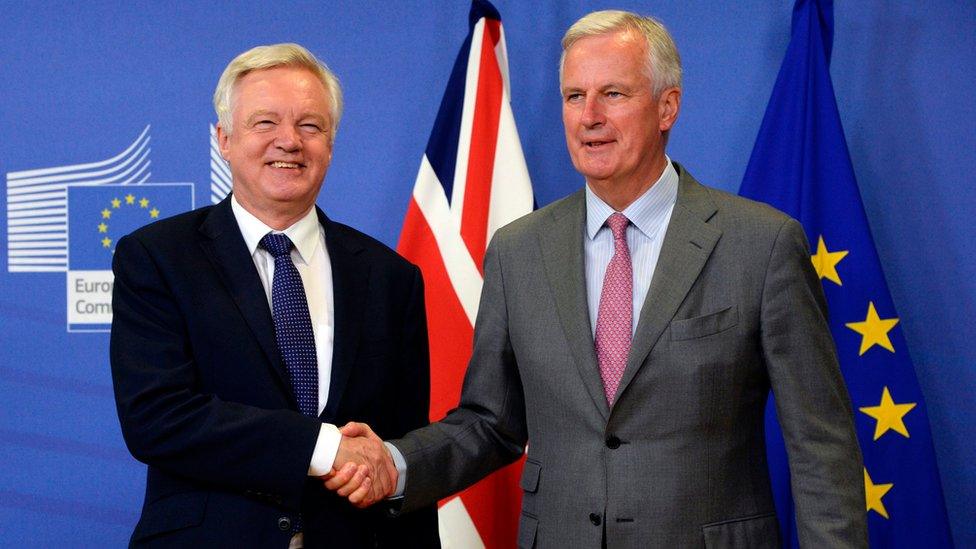
- Published30 August 2017
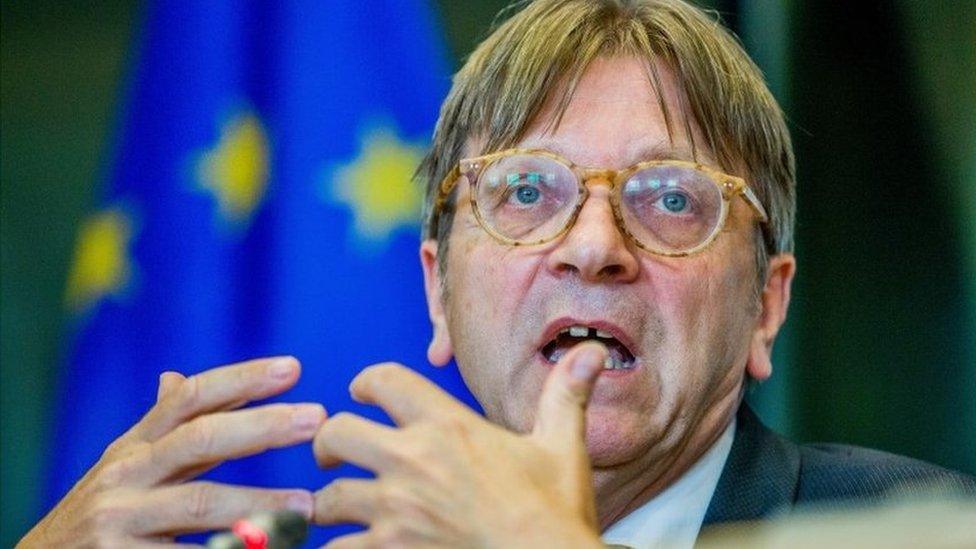
- Published30 December 2020

- Published11 August 2017
